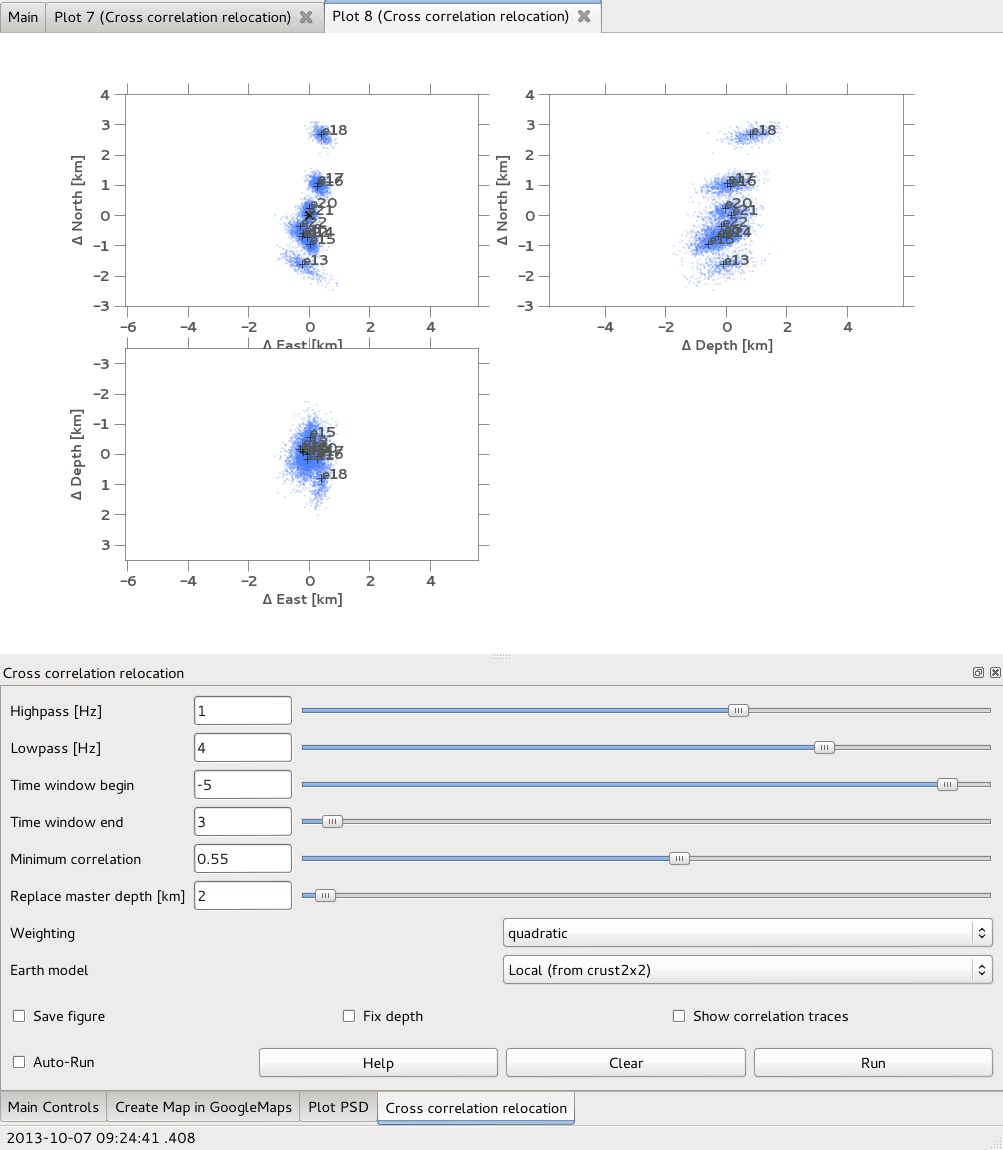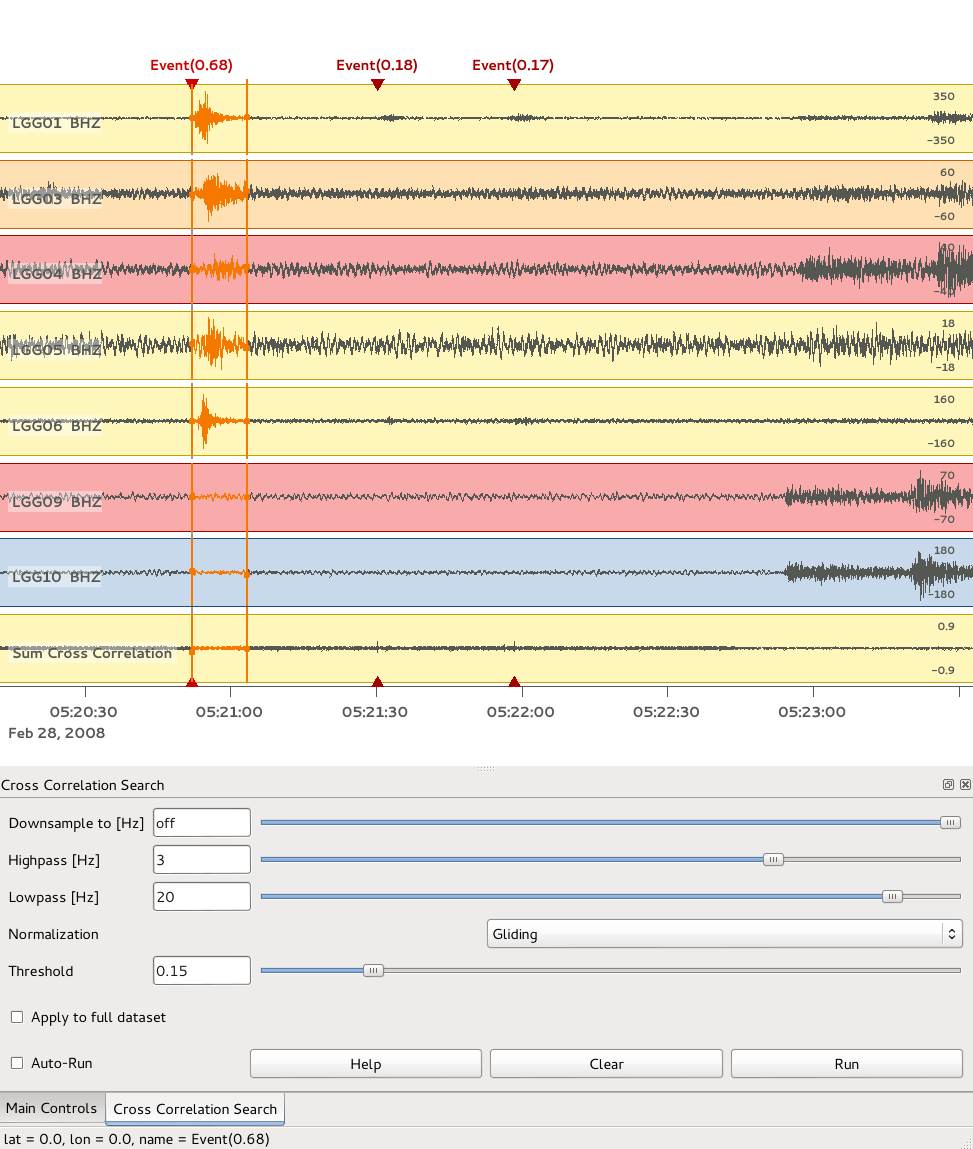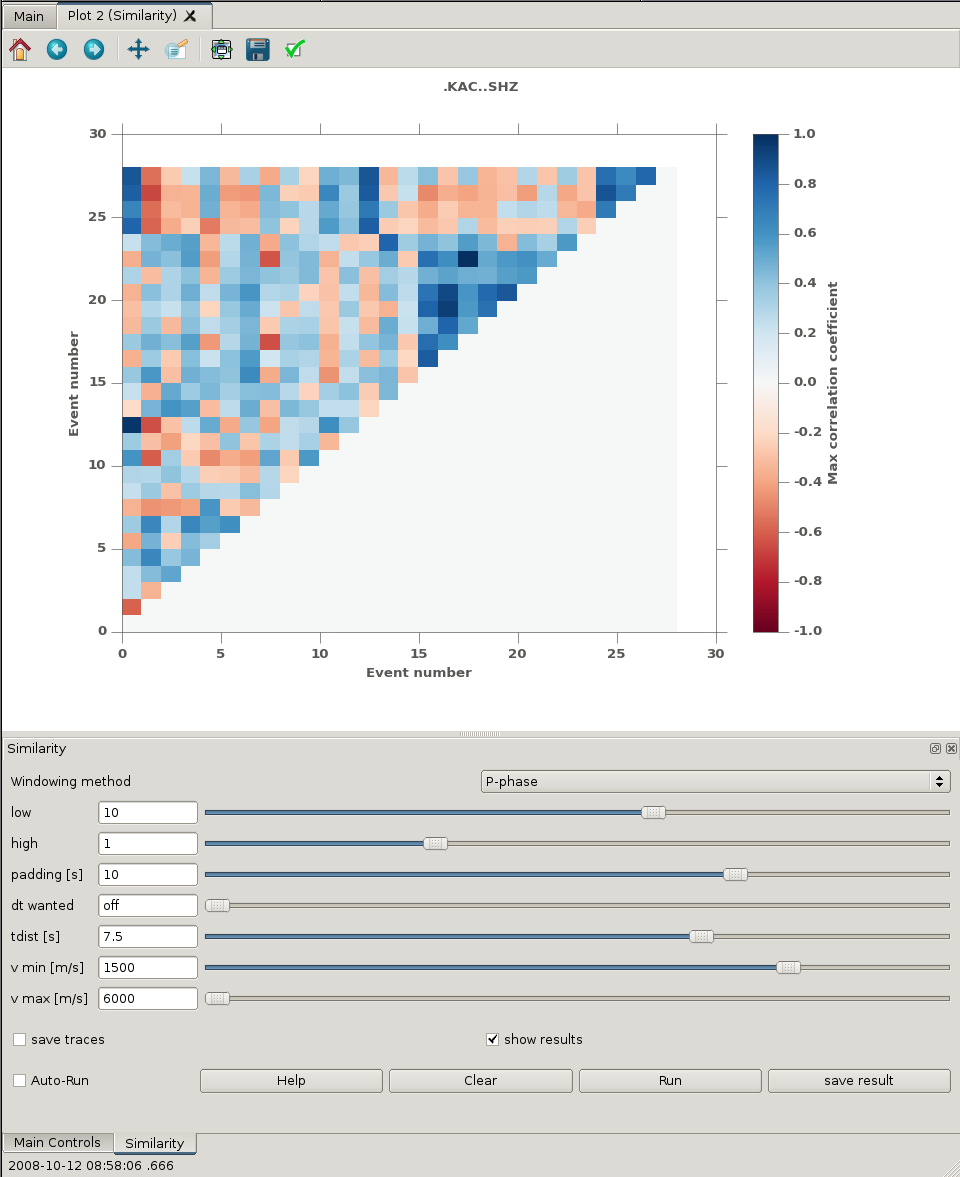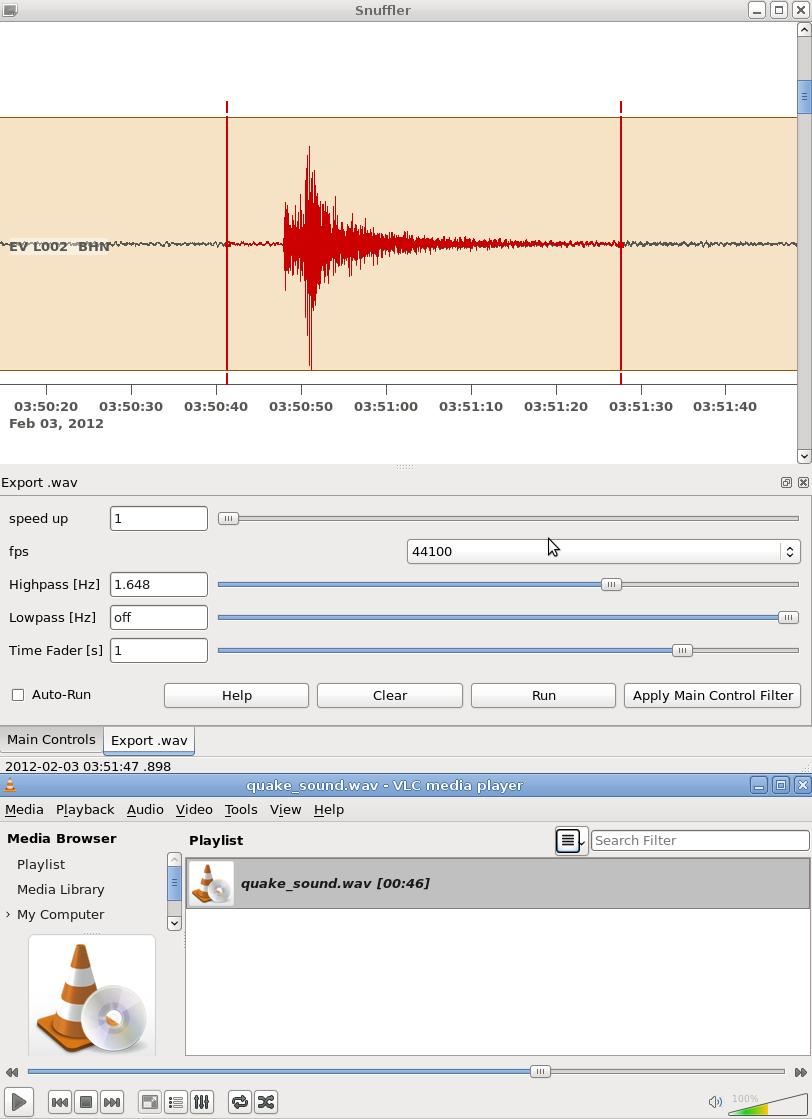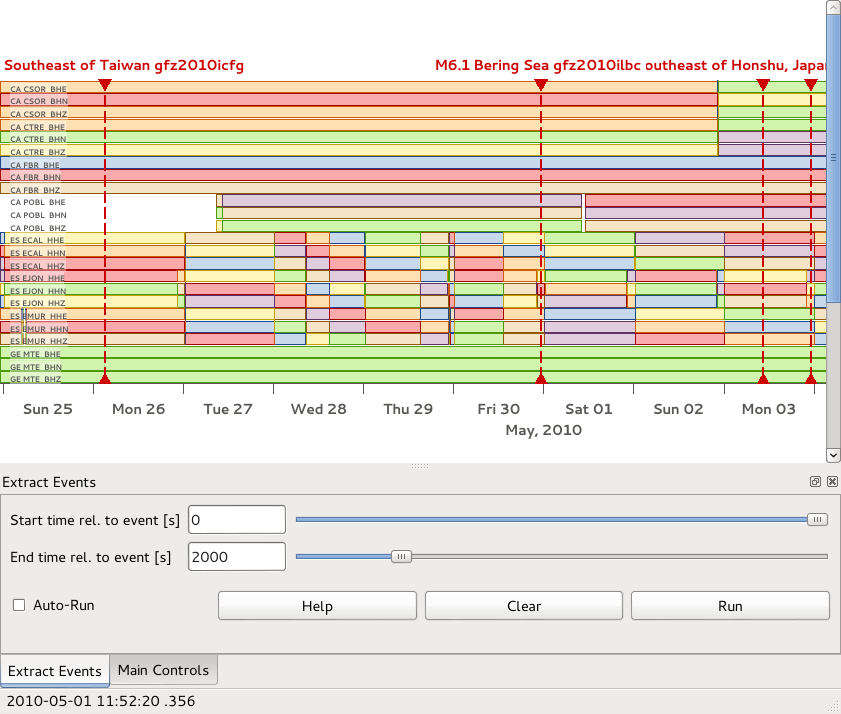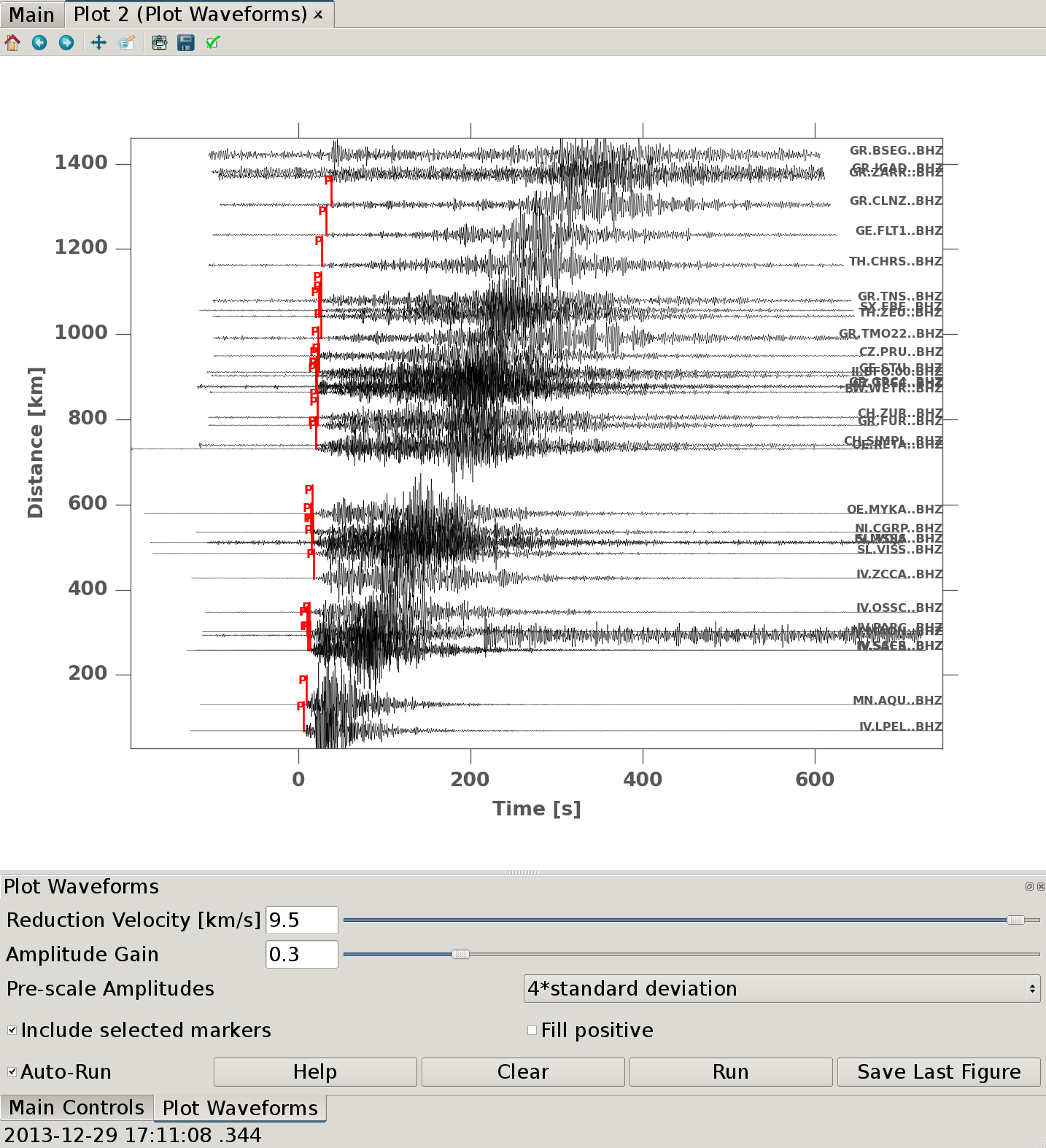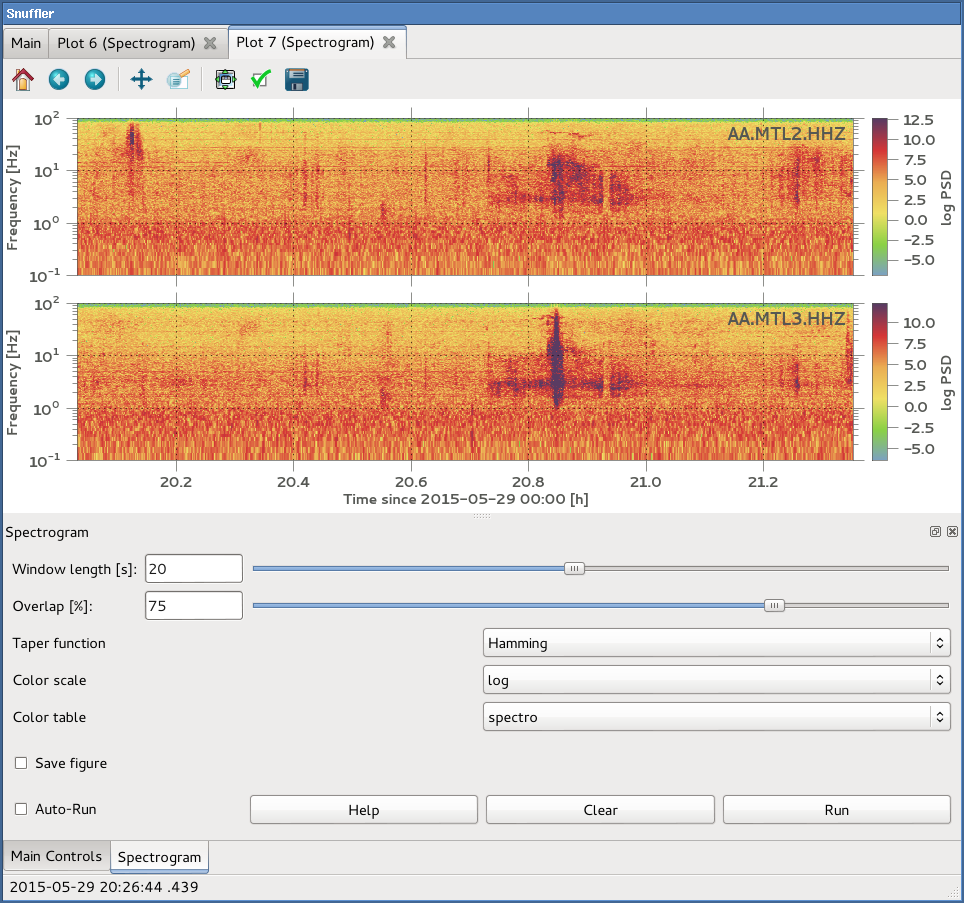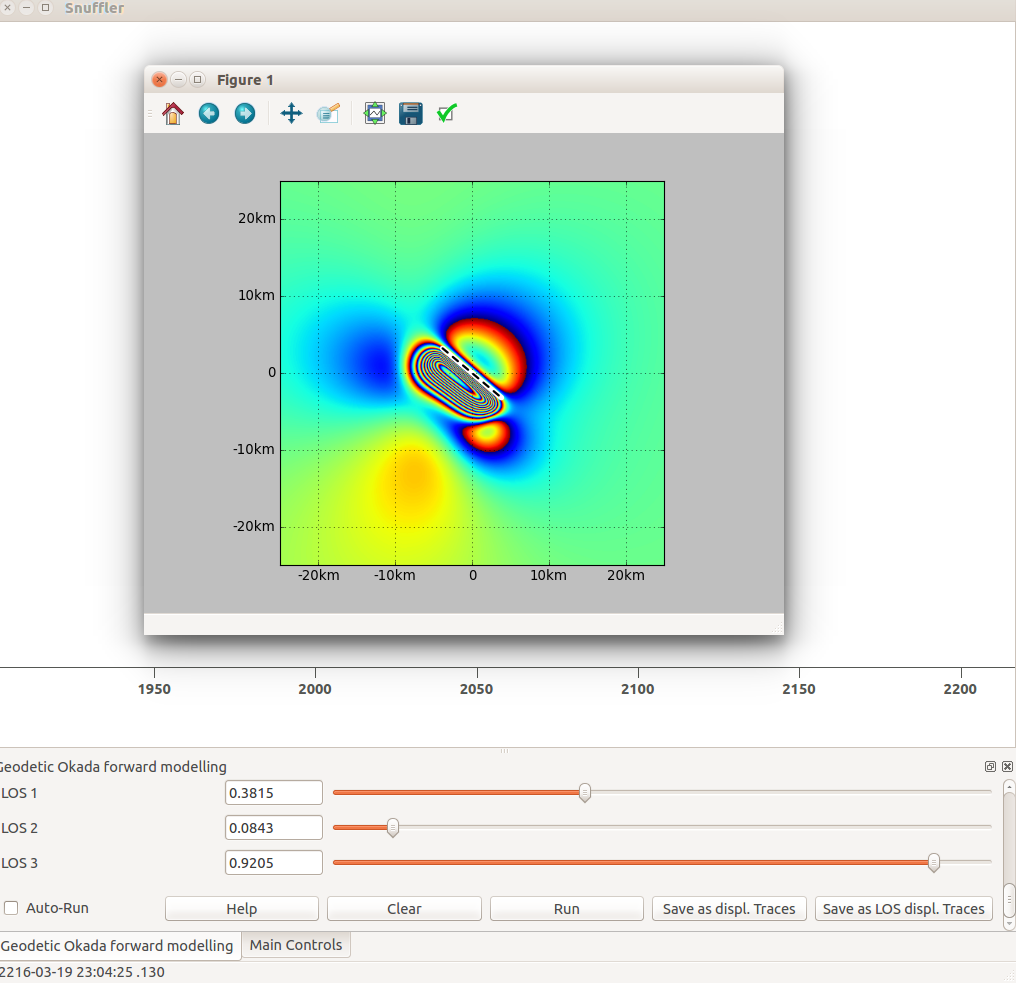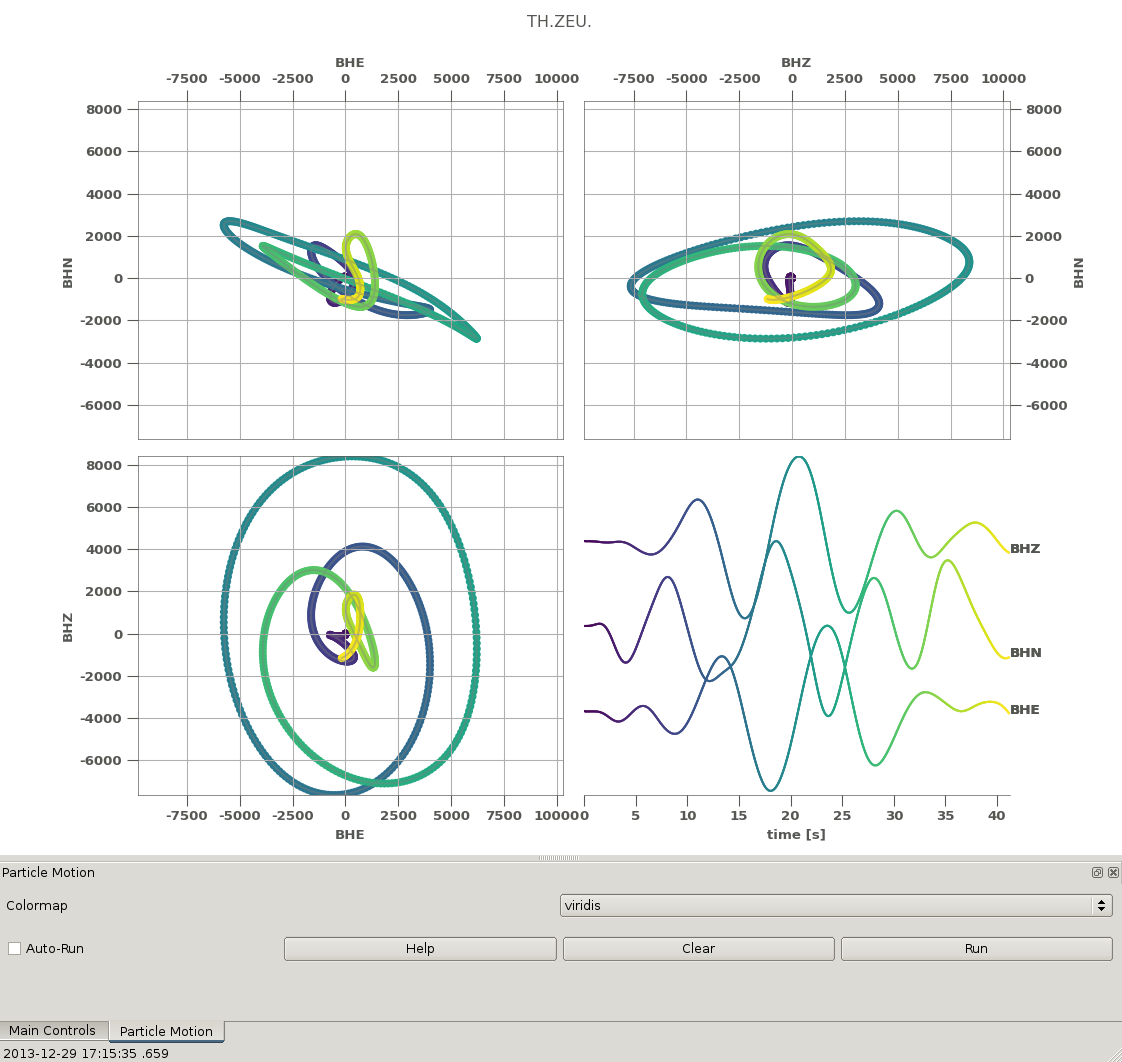Snufflings are plugins for seismological trace viewer Snuffler which is part of the Python framework Pyrocko.
An overview of available snufflings is given at the end of this page.
Clone this repository and change directory:
git clone https://github.com/pyrocko/contrib-snufflings.git
cd contrib-snufflings
Create symbolic links pointing from this directory into $HOME/.snufflings.
The included setup.py script provides a shortcut for that:
python setup.py link [arguments]
If no arguments are given, all available snufflings will be linked. You will
find the new snufflings under panels or run in Snuffler's menu.
Pull updates from the repository:
git pull origin master
Most snufflings include documentation which can be found in the Help menu in Snuffler.
After cloning this repository, add your own snufflings and send a pull request.
We recommend to add a doc string at the top of each snuffling right beneath the snuffling's class name. This text will be shown when pressing the Help button on the snuffling's panel. It should give an overview of the functionalities. Wrapping this text in html code can be used to pretty up the documentation.
If you miss some feature in a snuffling, discover a bug or would like to discuss an idea for a new snuffling click on Issues and open up a New Issue.
Plot power spectral densities
file: psd.py
Relocate events by cross correlating waveforms
file: cc_relocation.py
Find repeating events
file: corrsearch.py
Cross correlate selected events. Results, including cross-correlation factor and time lags between maxima of the cross correlation can be stored in YAML format to ease later analysis.
directory: cc_matrix
Export seismograms to .wav files or listen to seismological recordings. Direct
playback requires the PyQt4 bindings for Phonon.
(E.g. on Debian and ubuntu available through: apt-get install python-qt4-phonon)
file: audio.py
Temporal overview of catalog data.
file: time_line.py
Save waveforms for time windows around selected events as MSEED. This is a hybrid Snuffling which can be run from the command-line as well.
file: extract_events.py
Export selected/visible waveforms as MSEED, ASCII, SAC or YAFF files.
file: export_waveforms.py
Applying a reduction velocity allows to 'shrink' the time domain. Figures can be exported in various image file formats like .png or .pdf. In order to improve the visual perception of small wiggles, positive amplitudes can be plotted in filled mode.
file: plot_traces.py
file: spectrogram.py
Visualize and output of a data trace for a rectangular dislocation source in an elastic halfspace. You will need to go to the okada dir and type make in order to compile the C-Code.
directory: okada
Plot combinations of vertical and horizontal channels of selected stations.
file: particle_motion.py

